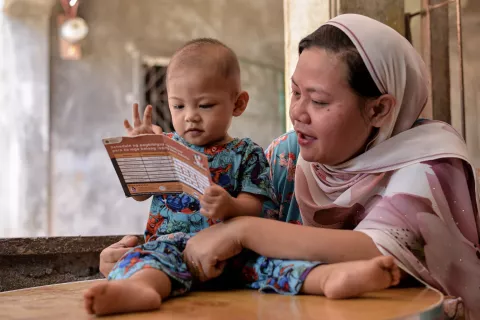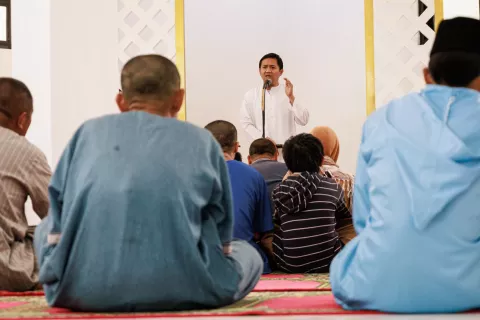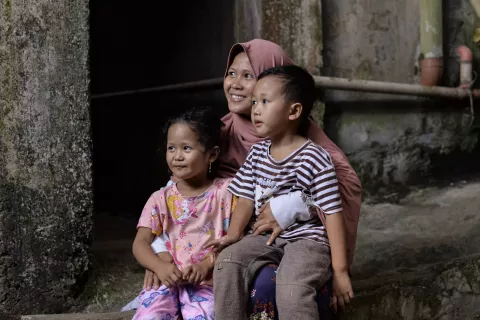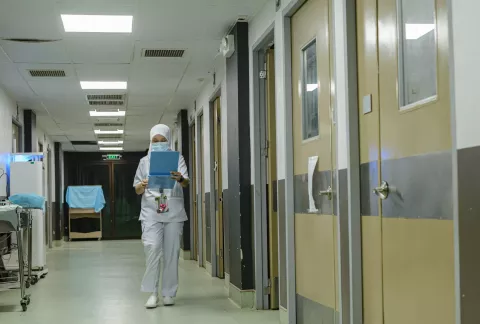DOH, WHO, UNICEF Celebrate 50 Years of Immunization in the Philippines Amidst Global Concerns Over Disease Outbreaks
Joint Press Release
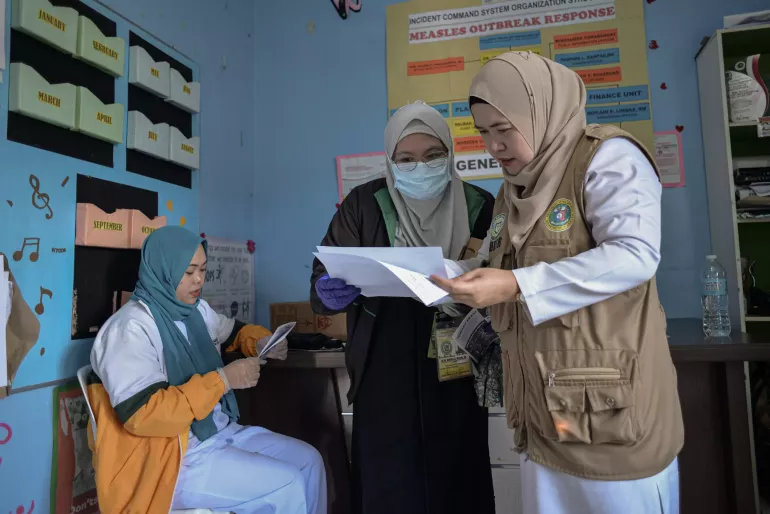
MANILA, 19 April 2024 – This year’s celebration of World Immunization Week marks the 50 years of the Essential Programme on Immunization (EPI), a global endeavor to ensure equitable access to life-saving vaccines for every child, regardless of their geographic location and socioeconomic status.
Through its local campaign “50 Years of Immunization: Kapag Bakuna ay Kumpleto, Lahat Protektado!”, the Department of Health (DOH), in collaboration with the World Health Organization (WHO), the United Nations Children’s Fund (UNICEF), and partners, emphasizes the achievements of the Philippines to protect children, adolescents, pregnant women, and the elderly against vaccine-preventable diseases (VPDs), while raising concern on the global resurgence of outbreaks.
“Immunization is an essential part of primary health care. We urge national and local governments, civil society organizations, private sector, and community members to work together to improve the vaccination programme in the Philippines. Every child deserves to be protected from vaccine-preventable diseases,” said WHO Representative to the Philippines, Dr. Rui Paulo de Jesus.
Although vaccination has saved millions of lives in the past five decades, protecting vulnerable communities against VPDs remains a challenge. The measles outbreak in the Bangsamoro Autonomous Region in Muslim Mindanao (BARMM) and the localized pertussis outbreaks in Luzon and Visayas entail that more work needs to be done.
According to the 2022 WHO and UNICEF Estimates of National Immunization Coverage (WUENIC), there are 637,000 children in the Philippines who have not been vaccinated, which puts them at a higher risk of catching diseases.
“Vaccination is one of humanity’s greatest achievements. In the last 50 years alone, immunization has helped reduce child deaths globally by more than 80 percent. In just five decades we’ve gone from a world where the death of at least one child was something every parent expected, to a world where every child has a chance. If you are vaccinated, you hold a powerful shield that protects everyone else from the threat of disease and death,” said UNICEF Representative to the Philippines Oyunsaikhan Dendevnorov.
WHO has been providing technical assistance, disease surveillance, and health worker training, while UNICEF has been procuring vaccines, mobilizing additional human resources, strengthening the cold chain, and engaging religious, community, and youth leaders to address vaccine hesitancy.
"Immunization has been part of the foundation for Philippine progress for half a century now. Routine vaccination has crushed Wild Poliovirus transmission, polio outbreaks, and Maternal and Neonatal Tetanus in the Philippines. Vaccines helped reopen our economy from the lockdowns of the COVID-19 pandemic. Immunization is key to a brighter, healthier future for all Filipinos. Magpabakuna po tayo tungo sa isang Bagong Pilipinas, kung saan Bawat Buhay Mahalaga," expressed DOH Secretary Teodoro J. Herbosa.
Media contacts
About UNICEF
UNICEF promotes the rights and wellbeing of every child, in everything we do. Together with our partners, we work in 190 countries and territories to translate that commitment into practical action, focusing special effort on reaching the most vulnerable and excluded children, to the benefit of all children, everywhere.
For more information about UNICEF and its work for children in the Philippines, visit www.unicef.ph.
Follow UNICEF Philippines on Facebook, Instagram, LinkedIn, TikTok and Twitter and YouTube.

